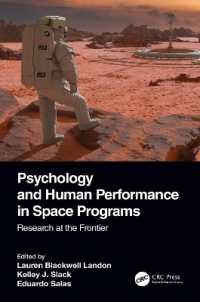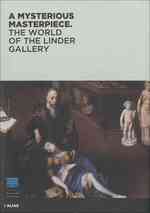Description
(Text)
The violence unleashed in various forms of warfare and systemic injustice does not simply disappear once a war or a dictatorship is officially ended. The effects of violence continue to live on powerfully in both psychic processes and in communal and personal relationships.
What enables people to live in the aftermath of traumatizing acts of violence? Is it possible to disrupt the vicious circle of destructive reciprocity at work in armed conflicts, wars, and genocide? What does it mean to open up spaces of remembrance and mourning which do not reproduce violence mimetically? What does it mean to reflect theologically on reconciliation in these contexts? Is it possible to achieve reconciliation that does not let the perpetrators of violence off too easy, thus adding to the humiliation of the survivors? The contributors to this volume examine an array of situations in the aftermath of violence, in which new forms of violence have emerged, including post-Apartheid South Africa, Rwanda after the genocide, postcolonial New Guinea, Ireland and Northern Ireland since the Good Friday Agreement , Argentina after militarist rule, Western Africa after civil wars, and Germany after the Shoah.
This book is directed at students and teachers of religion, anthropology, and history, as well as professionals involved in therapy, counseling and pastoral work who are looking for new ways of dealing with situations after violence .
((The authors consider religious practices, theological reflections, as well as cultural resources which hold the potential to address the aftermath of violence in constructive ways. Biblical narratives, symbols, and rituals that address the experience of trauma come into play. Liturgical as well as theological traditions that grapple with the task of reconciliation are explored. Political and cultural initiatives that seek to work through the conflicts as well as ambivalences of memorials dedicated to the victims of collective atrocities are discussed.))
[Nach der Gewalt
Religion, Trauma und Versöhnung]
Die Gewalt, die in Kriegen und Bürgerkriegen ausgeübt wird, ist mit der Unterbrechung unmittelbarer Gewalthandlungen nicht "zu Ende". Sie setzt sich oftmals fort in der Zerstörung von Beziehungen zu anderen und zu sich selbst. Traumatisierend wirken Einbrüche in die leiblich-seelische Integrität sowie die Zerstörung von vertrauten Lebensumwelten.
Wie kann im Angesicht von Traumatisierung Leben gestaltet und zerstörerische Gewaltreziprozität unterbrochen werden? Wie können Erinnerungsräume im Angesicht von kollektiver Traumatisierung geschaffen werden, in denen Gewalt nicht einfach fortgeschrieben wird? Was bedeutet es dabei, theologisch über Versöhnung nachzudenken? Die Beiträge dieses Buches analysieren beispielhaft Situationen in Südafrika nach dem Ende der Apartheid, in Ruanda nach dem Völkermord, im postkolonialen Papua Neu Guinea, in Irland und Nordirland nach dem Bürgerkrieg, in Argentinien nach der Zeit der Militärdiktatur, in Westafrika nach dem Bürgerkrieg, aber auch in Deutschland nach der Shoah.
Das Buch richtet sich an alle Menschen, die in Bildungseinrichtungen, in therapeutischer Arbeit, in Religionsgemeinschaften und in politischen Prozessen engagiert sind, Gewalt zu unterbrechen und Lebens-Wege "nach der Gewalt" zu suchen.
((Die Autorinnen und Autoren dieses Buches fragen nach den religiösen Ressourcen, theologischen Traditionen und kulturellen Ausdrucksformen, die in diesen hoch ambivalenten Kontexten ein heilsames Potential entfalten können.
Mit der gewaltumwandelnden Erzählbewegung der Bibel kommen Ressourcen aus der jüdischen und der christlichen Religion in den Blick. Darüber hinaus werden sowohl liturgische also auch theologische Traditionen untersucht. Politisch kulturelle Initiativen der Konfliktaufarbeitung werden in ihrer Komplexität vorgestellt sowie die Bedeutung verschiedener Gedenkstätten analysiert.))
(Author portrait)
Andrea Bieler, Dr. phil. ist Professorin für Praktische Theologie mit dem Schwerpunkt Liturgiewissenschaft an der Pacific School of Religion und der Graduate Theological Union in Berkeley, Kalifornien.







